Book urgent care & walk-in clinics near me in Chicago, IL
Own a clinic? Add your location.
Help patients book appointments with you on Solv. It's free!
20 instant-book locations
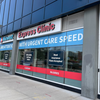
Midwest Express Clinic, West Loop- IL
Midwest Express Clinic
Today
View more
Midwest Express Clinic, River North- IL
Midwest Express Clinic
Today
View more
Midwest Express Clinic, Bucktown-Wicker Park- IL
Midwest Express Clinic
Today
View more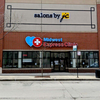
Midwest Express Clinic, Lakeview- IL
Midwest Express Clinic
Today
View more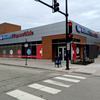
Midwest Express Clinic, Roscoe Village- IL
Midwest Express Clinic
Today
View more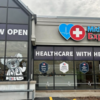
Midwest Express Clinic, Logan Square - IL
Midwest Express Clinic
Today
View more
Midwest Express Clinic, Archer Heights- IL
Midwest Express Clinic
Today
View more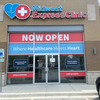
Midwest Express Clinic, Gage Park- IL
Midwest Express Clinic
Today
View more
Midwest Express Clinic, Portage Park- IL
Midwest Express Clinic
Today
View more
Midwest Express Clinic, Mayfair- IL
Midwest Express Clinic
Today
View more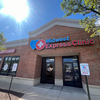
Midwest Express Clinic, Garfield Ridge- IL
Midwest Express Clinic
Today
View more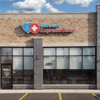
Midwest Express Clinic, Mount Greenwood- IL
Midwest Express Clinic
Today
View more
Family Urgent Care, West Rogers Park - Chicago
Family Urgent Care
Today
View more
Cermak Immediate Care, Chicago
Cermak Immediate Care
Today
View more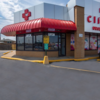
Clinica Urgent Care, Chicago
Clinica Urgent Care
Today
View more
Family Urgent Care, Logan Square - Chicago
Family Urgent Care
Today
View more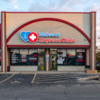
Midwest Express Clinic, Belmont Cragin
Midwest Express Clinic
Today
View more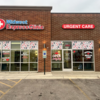
Midwest Express Clinic, Rogers Park- IL
Midwest Express Clinic
Today
View more
AFC Urgent Care, Cicero
AFC Urgent Care
Today
View more
Midwest Express Clinic, Cicero- IL
Midwest Express Clinic
Today
View moreOwn a clinic? Add your location.
Help patients book appointments with you on Solv. It's free!
Getting to Know the Chicago Area
Navigating the bustling streets of Chicago can be an adventure in itself, especially when you find yourself in need of urgent care. Fortunately, this vibrant city is home to numerous urgent care clinics, conveniently located near some of its most iconic landmarks. Here’s a guide to finding the right urgent care facility in the Windy City, with references to notable sites and the major roadways that frame them.
The Loop, the heart of Chicago, is bounded by the Chicago River to the north and east, Lake Michigan to the east, Roosevelt Road to the south, and Congress Parkway to the west. Here, you’ll find Rush Urgent Care located near the renowned Willis Tower and just a stone's throw from Millennium Park. This central location makes it easily accessible for both locals and visitors alike, especially for those exploring the Art Institute of Chicago or catching a show in the theater district.
Just north of the Loop lies the Near North Side, where landmarks like Navy Pier and the Magnificent Mile draw crowds year-round. Northwestern Medicine Immediate Care is situated conveniently near the intersection of Oak Street and Michigan Avenue, making it a great option for shoppers and tourists needing quick medical attention after a day of exploration.
Moving further north, Lincoln Park offers a scenic backdrop with its namesake park and the Lincoln Park Zoo. Here, you can find Immediate Care at Lincoln Park, nestled between Diversey Parkway and North Avenue, making it a perfect stop for families enjoying a day at the zoo or the beach.
In Hyde Park, home to the prestigious University of Chicago, Immediate Care at Hyde Park is located near the Museum of Science and Industry. Bounded by Cottage Grove Avenue and Lake Michigan, this clinic is an ideal choice for students and residents alike, just a short walk from the academic and cultural heart of the neighborhood.
Lakeview, famous for Wrigley Field and the lively atmosphere of Belmont Harbor, houses Lakeview Urgent Care. This facility is positioned close to Diversey Parkway and Irving Park Road, making it accessible for baseball fans and beachgoers alike.
In the trendy Wicker Park neighborhood, where the Flat Iron Arts Building stands out, you’ll find Wicker Park Urgent Care. This clinic is conveniently located near the intersection of North Avenue and Western Avenue, catering to the artistic crowd and those enjoying the vibrant local scene.
As you head west, the West Loop buzzes with activity, especially around Union Station and Fulton Market. Here, West Loop Urgent Care is located near Grand Avenue and Ashland Avenue, making it a convenient option for professionals and foodies alike.
For those venturing into Logan Square, known for its picturesque park and the Illinois Centennial Monument, Logan Square Urgent Care can be found at the intersection of Diversey Parkway and Kimball Avenue, making it easily accessible for residents enjoying the local arts and dining scene.
In Old Town, with its charming streets and historic sites like the Second City Theatre, you’ll discover Old Town Urgent Care near North Avenue and Clark Street, a perfect stop for those enjoying a night out.
River North is another vibrant area, with the Merchandise Mart and House of Blues Chicago nearby. Northwestern Medicine Immediate Care River North is strategically located at the intersection of Chicago Avenue and Wells Street, catering to those in the heart of the city’s nightlife.
Traveling further south, the South Loop boasts landmarks such as Soldier Field and the Shedd Aquarium. Here, you’ll find South Loop Immediate Care, nestled near Cermak Road and Lake Michigan, making it an ideal stop for families exploring the museums and attractions.
Whether you're enjoying the arts, indulging in culinary delights, or simply taking in the sights, Chicago's urgent care clinics are strategically placed to ensure you receive the care you need, all while surrounded by the city's rich tapestry of culture and history.
How Much Does Urgent Care Cost In Chicago?
The cost of urgent care in Chicago can vary widely based on factors such as the specific clinic, the nature of the medical issue, and whether or not you have insurance. Generally, patients can expect to pay more for services without insurance, while those with coverage may have lower out-of-pocket costs depending on their plan's benefits.
Additional factors, such as location and the complexity of the treatment required, can also influence the overall expense. It's advisable to check with individual clinics for their pricing structure and to confirm whether they accept your insurance for a clearer understanding of potential costs.
What is the cost of an urgent care visit in Chicago without insurance?
The cost of an urgent care visit in Chicago without insurance can vary significantly based on the clinic and the services provided. Generally, basic consultations tend to be more affordable, while more complex evaluations or treatments, such as X-rays or lab tests, will typically incur higher charges.
Payment methods at urgent care facilities usually include credit and debit cards, cash, and some clinics may offer payment plans for those who need them. Additionally, the specific condition being treated can greatly influence the overall cost; for example, a straightforward issue like a sore throat may be less expensive compared to a more serious injury that requires diagnostic imaging or specialized care. Patients are encouraged to inquire about pricing beforehand and discuss any available payment options to effectively manage their healthcare expenses.
What Conditions are Treated in Chicago?
Urgent care clinics in Chicago are equipped to handle a wide range of medical conditions, providing convenient access to care for non-life-threatening issues. Commonly treated conditions include:
-
Respiratory infections (such as colds, flu, and bronchitis)
-
Allergic reactions and seasonal allergies
-
Minor injuries (such as sprains, strains, and fractures)
-
Cuts and lacerations that may require stitches
-
Skin conditions (including rashes, insect bites, and minor burns)
-
Gastrointestinal issues (like nausea, vomiting, and diarrhea)
-
Urinary tract infections (UTIs)
-
Headaches and migraines
-
Sports injuries
Many urgent care facilities in Chicago also offer X-ray services, allowing for immediate imaging to assess fractures or other injuries. Additional services may include laboratory testing, vaccinations, and physical exams for school or work requirements. With extended hours and the ability to walk in without an appointment, urgent care clinics provide a valuable resource for addressing a variety of health concerns efficiently.
Chicago Urgent Care FAQs
Where can I find the best urgent care center in Chicago?
The best urgent care centers in Chicago can often be found through online reviews, local health directories, and recommendations from healthcare professionals, with facilities like Northwestern Medicine Immediate Care and Rush Urgent Care frequently receiving high ratings.
What are the typical wait times at Chicago urgent care centers?
Typical wait times at urgent care centers in Chicago can range from 15 minutes to over an hour, depending on the time of day, the center's location, and the number of patients ahead of you.
Which urgent care centers in Chicago are open 24/7?
There are several urgent care locations in Chicago that offer extended hours, however, there are no walk-in clinics that are open 24/7 in Chicago.
Do urgent care centers in Chicago accept walk-ins, or do I need an appointment?
Most urgent care centers in Chicago accept walk-ins, allowing patients to receive care without a prior appointment, though some may offer online check-in options to reduce wait times. You can use SolvHealth to save your place in line at many Chicago area urgent care’s.
Can I get a COVID-19 test at an urgent care center in Chicago?
Yes, many urgent care centers in Chicago provide COVID-19 testing, including PCR and rapid tests, often without the need for a doctor's referral.
What other services do Chicago urgent care centers provide beyond basic medical care?
In addition to basic medical care, Chicago urgent care centers may offer services such as X-rays, lab testing, vaccinations, physical exams, and treatment for minor injuries and illnesses.
Are there pediatric urgent care centers in Chicago?
Yes, there are pediatric urgent care centers in Chicago, such as the Pediatric Urgent Care at Lurie Children’s Hospital of Chicago. Additionally, you can find pediatric services at many other urgent care facilities across the city — including, Physicians Immediate Care locations.
How do I choose between an emergency room and urgent care in Chicago?
Choose an emergency room for life-threatening conditions or severe injuries requiring immediate attention, while urgent care is suitable for non-life-threatening issues that need prompt care but are not emergencies.
What are the most highly rated urgent care centers in Chicago?
Highly rated urgent care centers in Chicago include Northwestern Medicine Immediate Care, Rush Urgent Care, and CareNow Urgent Care, known for their quality service and patient satisfaction.
Top 7 Local FAQs About Chicago Healthcare
Why do urgent care centers close at 8 pm?
Urgent care centers often close at 8 pm to balance patient demand with operational costs, allowing staff to manage patient flow effectively while still providing extended hours compared to traditional clinics.
Can an urgent care provider in Chicago treat more serious conditions?
Urgent care providers in Chicago can treat many non-life-threatening conditions, but they are not equipped to handle serious emergencies, which should be directed to an emergency room.
What do urgent care centers treat?
Urgent care centers treat a variety of conditions, including minor injuries, infections, illnesses, and provide services like X-rays, lab tests, and vaccinations.
Low-cost healthcare with no insurance?
Many urgent care centers offer low-cost services for uninsured patients, and community health clinics in Chicago provide affordable healthcare options based on a sliding fee scale.
What is healthcare for low-income people in Illinois?
In Illinois, low-income individuals can access healthcare through programs like Medicaid, which provides comprehensive medical coverage, and community health centers that offer services regardless of ability to pay.
Which Chicago urgent care centers offer COVID-19 testing?
Many urgent care centers in Chicago, such as Northwestern Medicine Immediate Care and UChicago Medicine Urgent Care, offer COVID-19 testing, including both PCR and rapid tests.
Does Houston or Chicago have better hospitals?
Both Houston and Chicago have highly regarded hospitals, but preferences may vary based on specific specialties and personal experiences; Houston is known for its Texas Medical Center, while Chicago boasts institutions like Northwestern Memorial Hospital and the University of Chicago Medical Center.
Common Health Insurance Companies in Illinois
In Illinois, residents have access to a diverse range of health insurance options, catering to various needs and preferences. Whether you are seeking individual coverage, family plans, or employer-sponsored insurance, understanding the top health insurance providers in the state can help you make informed decisions about your healthcare. Here’s a list of some of the most common health insurance companies operating in Illinois:
-
Blue Cross and Blue Shield of Illinois
-
Aetna
-
Cigna Health and Life Insurance Company
-
UnitedHealthcare
-
Humana
-
Health Alliance
-
Ambetter of Illinois
-
Meridian Health (Centene Corporation)
-
Molina Healthcare of Illinois
-
WellCare Health Plans
These companies offer a variety of plans, including individual and family health insurance, Medicare, and Medicaid options, ensuring that residents can find coverage that meets their specific healthcare needs.
Chicago Healthcare News in 2024
-
UChicago Medicine to Begin Offering Urgent Care in Homewood
The Southland Journal (January 17, 2024) -
Oak Brook Officials Mulling Proposal For Pediatric Urgent Care Facility In Oakbrook Center
Chicago Tribune (October 21, 2024) -
Chicago's 1st Black-owned urgent care helps fill health care void on South Side
ABC 7 Chicago (February 14, 2021)
Related Searches
Allergy Testing in Chicago, IL
RSV Test in Chicago, IL
Diabetes Test in Chicago, IL
COVID-19 Pill in Chicago, IL
Cholesterol Test in Chicago, IL
Vitamin D Test in Chicago, IL
COVID-19 Testing in Chicago, IL
Pediatric Urgent Care in Chicago, IL
Mono Test in Chicago, IL
Drug Test in Chicago, IL
Diagnostic Test in Chicago, IL
A1C Test in Chicago, IL
Sports Physicals in Chicago, IL
Blood Test in Chicago, IL
Pulmonary Function Test in Chicago, IL
Ear Wax Removal in Chicago, IL
Retail Clinic in Chicago, IL
Strep Test in Chicago, IL
H Pylori Test in Chicago, IL
DNA Test in Chicago, IL
Flu Test in Chicago, IL
DOT Exam in Chicago, IL
Pregnancy Test in Chicago, IL
TB Test in Chicago, IL
Basic Metabolic Panel in Chicago, IL
Urinalysis in Chicago, IL
Glucose Test in Chicago, IL
Thyroid Test in Chicago, IL
STD Testing in Chicago, IL
CMP Test in Chicago, IL
Lab Tests in Chicago, IL
Dermatologists in Chicago, IL
Hepatitis test in Chicago, IL
Aetna Urgent Care
Blue Cross Blue Shield Urgent Care
Cigna Urgent Care
COVID-19
Flu
United Health Urgent Care
» All services in Chicago, ILFind urgent care
Nearby cities
Everyday Healthcare, Simplified
Expert advice to help you live your best life







